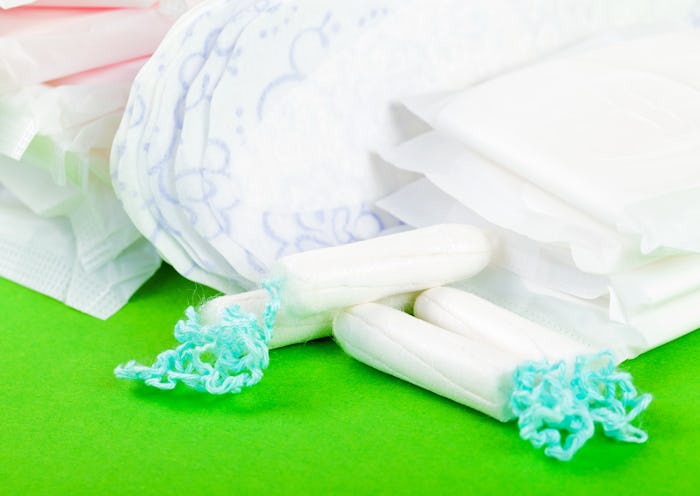Life

How Soon Will Your Period Come Back If You're Breastfeeding? There Is No Exact Timeline
Breastfeeding comes with a ton of benefits, but one of my favorites was how it delays your menstrual cycle. Of course everyone is different, but if you're wondering how soon will your period come back if you're breastfeeding, you may be surprised at how long you can wait before stocking your bathroom cabinets with tampons or pulling out your menstrual cup.
According to Baby Center, there is no exact timeline on when your Aunt Flo will drop in for her first visit after baby. The website noted that your menstrual cycle's return is related to your hormones and your breastfeeding style, such as introducing solids before your baby is 6 months old, only breastfeeding in the morning, your baby sleeping through the night, and other variables.
The delay of your menstrual period ties into the theory that breastfeeding can be used as a contraception. According to La Leche League International, lactational amenorrhea is the name for missed periods while breastfeeding and most mothers who breastfeed exclusively (as in, their baby takes in no other form of nourishment) usually don't have their first postpartum period until six months after delivery. (Which is when solids are often introduced into a baby's diet.)
I asked private practice lactation consultant Sarah Lester, owner of Naturally the Best Lactation Services, how soon a period can come back if you're breastfeeding. "It can vary widely," she says. But she notes that when she does see a client whose period has returned early, there's usually a reason. "Typically I see an early return when moms are dealing with bad latch, which makes sense. And by early, I mean four months and under," Lester says.
Basically, the more often your baby is at your breast, the longer your menstrual period could take to return. La Leche League International noted that exclusive breastfeeding (absolutely no other solid or liquid entering your baby's mouth) for the first six months, comforting your baby at the breast, having no pacifiers or bottles introduced, co-sleeping during nap and night feedings, nursing frequently throughout the day and night (with no schedules), and avoiding anything that would restrict you from nursing your baby can prolong lactational amenorrhea.
According to Kelly Mom, lactational amenorrhea is considered a natural postpartum infertility and can be used to prevent pregnancy. The website noted that exclusively breastfeeding your baby is 98 to 99.5 percent effective at preventing pregnancy as long as your baby is less than 6 months old, your period hasn't returned, and your baby is breastfeeding on demand both day and night with no other solids or liquids to eat. Like you needed another reason to enjoy skipping the feminine hygiene aisle at Target, right? As always, talk to your doctor about any contraceptives and birth control methods before making any decisions and enjoy not having a period.